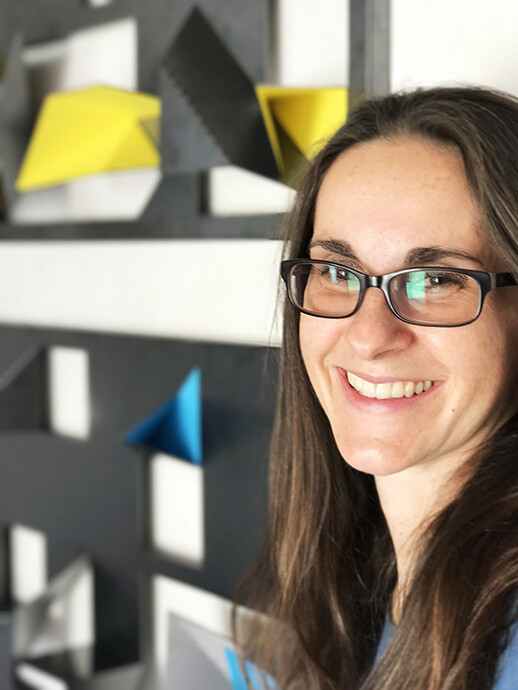
Contact
Areas of expertise
Biography
Selma Ćatović Hughes grew up in Sarajevo, Bosnia and Herzegovina. She holds Master in Architecture from UC Denver and BA in Architecture from University of New Mexico, USA. Her research and artistic practice of visual arts is a collection of individual and collective voices of memory. Selma has been an active participant in a number of conferences and academic writings that delve into issues of transitional justice accountability, difficult histories, identity and place. Recipient of several awards and research grants in collaboration with established institutions pursuing justice, peace, and sustainable future, she has been awarded the Paul Ré Peace Prize, the Lifetime Achievement Award for Historical Healing Through Art. Selma has several publications with De Gruyter, Routledge, University of Hawaii Press, and Brill. For the past 7 years she has been teaching Design Foundations at the American University of Sharjah, UAE. She has exhibited projects of various scales and materiality internationally, including Spain, USA, UAE, and Bosnia and Herzegovina. Currently Selma is a PhD researcher in Cultural History at the Faculty of History, Culture and Arts, University of Turku, Finland.
Research
Somatography of Memory Sediments: Tracing the city of elusive fragments and invisible boundaries, aims to extract the urgency of transitional justice accountability and address the (mis)judgement of the International Criminal Tribunal for former Yugoslavia (ICTY) mechanism in the aftermath of contested judicial narratives. The case study builds layers of tangible information (archival text, images, textures, installations) to (re)interpret time, place and memory as a composition of mnemonic episodes juxtaposed between official ethnocentric narratives and ruptures in transitional judicial system. The proposal is a part of a personal quest for fragments of the past - a time period encapsulated in the life of a teenager living under the Siege of Sarajevo and the loss of her father at the frontline - to decipher and reinterpret memories decades later. Assembled evidence (both written and visual) depicts sediments of how the city's frontline and its boundary fluctuated and later permeated collective narratives during the post-war period. The proposal is timely especially in regard to re-assessing the contemporary condition of collective memory formed by the decades of stale socio-political landscape and contested narratives. Additionally, there is a critical necessity of comparative interdisciplinary analysis of the ICTY archives and how it can be applied in mapping out tactile boundaries and intangible traces as dynamic apparatus of assembling collective memory. The theoretical framework will explore intergenerational dynamics of “the closing or opening of historical archives” in a way of easy public accessibility as an important transformative factor towards reinforcing collective memory (Assmann, 2015). Acclaimed narratives rely heavily on engaging with the contested past. However, the manipulation of fragments of the past and reiteration of their national antagonistic rhetoric supports the well-known argument about the selective use of collective memories, aiming to suppress and elevate opposing narratives to challenge the authenticity of memory (Said, 2000). Despite the incessant denials Karup-Durško argues that “the facts established in the ICTY verdicts cannot be changed, but they can very much influence memories” (2022). As a result, lack of transitional justice accountability and constant reinterpretations of historical discourse has had an impact on the ethno-political divisions within Sarajevo, BiH and the region. Furthermore, in the absence of a cohesive framework for the process of dealing with the past, Barslau and Bexter discuss the lack of better integration of memorialization as an essential tool in transitional justice efforts - creating spaces for “performances of democracy, not static representation of national identity” (Sevcenko, as quoted by Barslau and Bexter, 2007) is therefore directly linked to the transitional justice accountability process and facilitation of initiatives for educational dialogue at sites of remembrance as integral part of preserving the collective remembrance. The impact of archives and its socio-political and cultural role in constructing collective narratives can be transformative in “helping transfer information - and thereby sustain memory - from generation to generation” (Foote, 1990). With its multimodal approach – combining the official archival documents with personal experiences and a poetic interpretation of collective narratives – the proposed research identifies underutilized potential for revealing a tactile palimpsest of intergenerational collective remembrance that confronts hegemonic narratives.